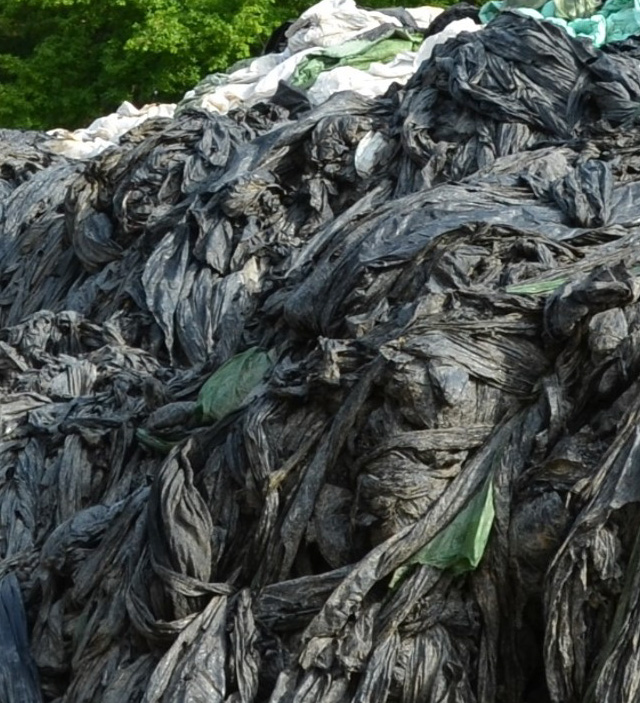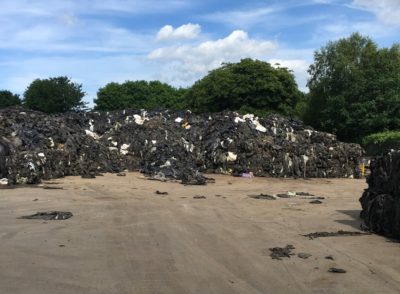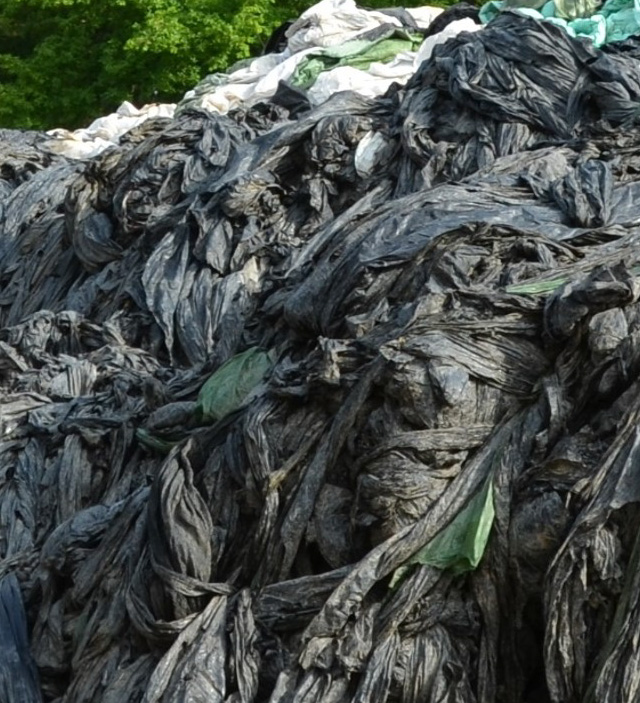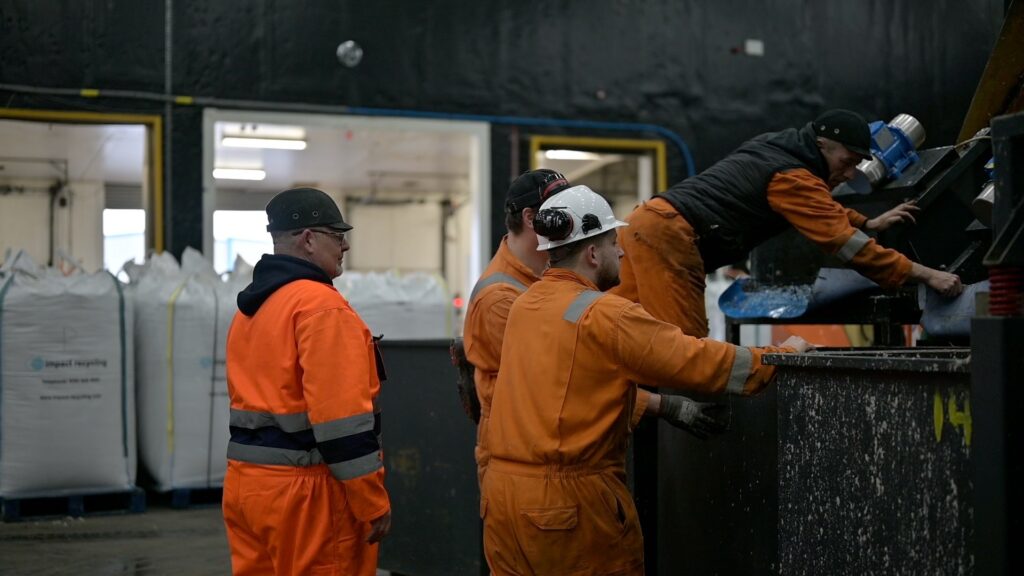The proposed scheme will be called Agriculture, Plastic & Environment UK (APE UK), and is planned to be operational before the end of 2019.
The scheme will aim to provide farmers with a “sustainable solution for the end-of-life management of their non-packaging agri-plastics,” commonly known as farm films.

These materials play “a hugely significant part in the production of crops and livestock”, according to APE UK, but can be damaging if not disposed of correctly.
The scheme will be funded by adding a £20 per tonne fee on to the material when it is purchased by farmers. The money will go to a not-for-profit company who will arrange for its collection – around 44,000 tonnes a year are put on the market with around 35% recycled, APE UK said.
Gate fees
However, some collectors of farm films have told letsrecycle.com that while they used to get paid by plastics recyclers for the material and also gained an income by charging for collection, they now face gate fees of £50 or more as the export markets tighten and become more difficult.
As a result, many collectors have reduced operations or stopped collecting films altogether, leading many farmers turning to landfill as there isn’t a viable outlet in their area, according to those involved in the farms film chain.
The organisers of APE UK say the scheme’s focus is initially on collection of the material, and it will aim to plug the gap in areas of the UK who aren’t serviced by a collector.
The scheme will also look to work with collectors to have enough volume to make the system work.
Then, it will aim to work with farmers in efforts to increase quality, as well as running bring-back sites which will operate on set days to allow farmers to bring in their farm films.
In the longer term, the organisers hope to pressure government into helping to fund schemes to wash the material to ensure it is of a higher quality.
Previous efforts by the government to introduce an Extended Producer Responsibility scheme for farm plastics were dropped in 2010, after the majority of respondents to a survey said no government intervention was needed (see letsrecycle.com story).
Collectors
In January 2019, Scotland introduced a ban on the burning of farm plastics on farms, saying it would affect silage wrap, crop covers, fertiliser bags and containers.

SEPA issued guidance at the time saying that five companies (Solway Recycling, Wyllie Recycling, Farm Waste Reycling, Agricycle Recycling and the Binn Group) could take the material in Scotland.
In England, waste management regulations from 2006 state that farmers can either store the material on site for 12 months, take it to a licensed off farm site, organise a collection or register for a license to dispose of it on-farm.
There are a number of companies around the UK which can process farm plastics, including RPC BPI, Herefordshire-based Farm Plastics Recycled; AgriCycle in Lincolnshire: Kernow Farm Plastics in Cornwall: and nationwide companies such as Solway.
However the future of the market is uncertain as company’s have begun laying off staff and heavily reducing their collection of farm films.
Speaking to letsrecycle.com, Philippa Arnold, environment policy adviser at the National Farmers Union, said: “After many years of a well-functioning plastic collection and recycling system, it is criminal that farmers have to send their plastic to landfill. With plastic recycling so high on the Government’s agenda it is now critical the industry gets assistance from government to help to ensure that our system is restored to resolve the problem long term.”
APE UK said that while the emphasis is initially on collections, discussions are also ongoing for more facilities across the UK and its European network to take in material.









Subscribe for free